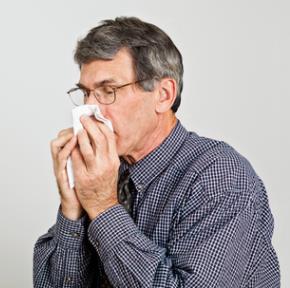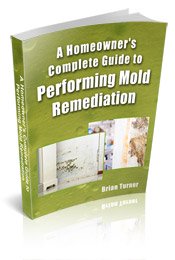Find a Mold Specialist Now
Click or Call, Toll-Free 24/7
Allergy to Mold
When a person has an allergy to mold, the body reacts to mold spores by kicking the immune system into overdrive. A mold spores allergy causes a number of physical reactions that can make a person feel very uncomfortable and sick. These symptoms may be severe in some people and mild in others, and generally the symptoms become worse when the exposure to mold spores increases.
Allergy Symptoms
If you are allergic to mold, you are most likely experiencing a few or all of these symptoms:
- Stuffy nose
- Sinus problems
- Runny nose
- Itchy eyes
- Watery eyes
- Coughing
- Sneezing
- Asthma
A mold spores allergy may flare up in the warmer months of the year if the allergy is caused by outdoor mold. Or, the symptoms may continue throughout the year if the spores are produced by an indoor mold problem. It is a good idea to identify the reason why you are experiencing symptoms, and reduce the mold exposure as much as possible.
Talking with a doctor can help you to identify the best treatment available for your allergy to mold. A doctor can prescribe medication for you to take during the warmer months if your allergy is caused by outdoor mold.
In any situation, it is a good idea to have your home tested for mold spores in order to determine if you have indoor mold problems. Some people may be experiencing mold spores allergy problems and automatically assume that it is a result of outdoor mold. But, a mold problem within the house may actually be a bigger source of the symptoms.
Getting Rid of Indoor Mold
Your allergy to mold will continue as long as mold spores are present, and the only way to get rid of the symptoms is by getting rid of the mold. The first step to mold eradication is to have a mold specialist test the air in your home for mold spores. This specialist will do a complete inspection and possibly surface testing to get additional information about the mold problem within your home.
Once the testing is complete, you can get rid of your mold spores allergy by cleaning up any mold that is present and by preventing the future growth of mold. Each situation is different and it requires an individual cleanup plan. The mold specialist can advise you on the best course of action to kill and remove the mold within your house.
Once the mold is gone, your allergy to mold will improve because there are no longer mold spores in the air to cause irritation. Of course the allergy will always be present, but you will not experience symptoms if there is no exposure to mold.
Preventing Future Mold Problems
After the mold has been removed, it is best to have another home test done in order to verify that all of the mold was found and removed. The specialist will do the air tests again, and compare them with the results from the first test. If there are still mold spores present, then additional cleanup needs to be done.
In order to prevent future mold problems, it is a good idea to limit the moisture in your home by using a dehumidifier in rooms that are often damp. Mold often grows in areas such as the bathroom, basement, or attic, and a dehumidifier can remove the moisture from the air to prevent any mold from taking hold.
Additionally, you may consider having yearly mold tests in order to be sure that the mold is not coming back. It is much easier to clean up a mold problem when it is identified early and before it has spread to other areas within the home. Preventing future mold growth will help you to keep your mold spores allergy under control.
Why We Recommend Having a Professional Test Your Home for Mold
- You can purchase tests that you can do yourself, but professional mold testers have extensive training in how to properly conduct tests and read the results. In fact, most are engineers. They will simply get more accurate results.
- Professionals also have more sophisticated tests which can tell you what kind of mold is growing in your home. If you have symptoms of an allergy to mold, your physician may value this information when formulating a treatment plan for you. Knowing the kind of mold you’re dealing with also helps you select the best products to eliminate the mold.
- Professional mold testers are trained to locate all the mold in a home. When there is visible mold in a home, there is often additional mold growing in places where it cannot be seen. It’s simply a waste of time and money to clean up the visible mold if you leave the hidden mold to continue growing and spreading throughout the house.
- We also recommend having a professional test your home for mold after the mold remediation process, to make sure all traces of mold have been removed.
To find professionals that can test your home for mold, click here.
Return From Allergy To Mold To Our Symptoms Of Mold Allergies Page
Black Mold Health Symptoms Home Page






